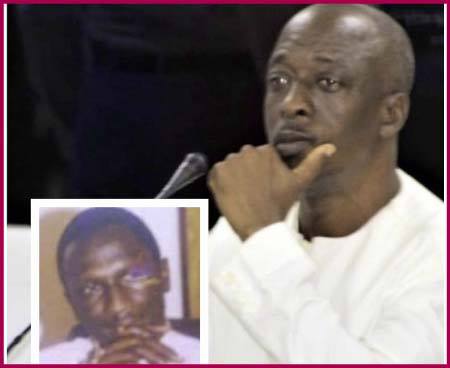 Alagi Yorro Jallow.
Alagi Yorro Jallow.Mamudu: Finally, the family of Ousman Koro Ceesay gets their due of justice after waiting for justice for decades, partially after only one of the accused persons, Yankuba Touray, has been condemned to death by the High court verdict in Banjul by hanging: When will the other accused persons face justice as “accused” going to court? Do we have prosecutorial biases in our criminal justice system? What factors do prosecutors consider in making a charging decision? The prosecutor has to do justice and sometimes paradoxical aims that “that guit shall not escape or innocence suffer.” Whether having regards to the facts of the entire murder trial and use saga. Upon a calm and sober consideration of the circumstances of Yankuba Touray’s conduct and involvement in the murder of Ousman Koro Ceesay, there are extenuating grounds for a presidential pardon or exercise of the prerogative of mercy powers in his favor to the principles based on the transitional justice system of forgiveness and reconciliation as the mantra of the 2016 coalition government election promises of Adama Barrow, were only Yankuba amongst the members of Armed Forces Provisionally Ruling Council (AFPRC) and other senior officers allegedly involved in the murder of Ousman Koro Ceesay not charged and tried( Edward Sighateh and Peter Sighateh) instead( Edward and Alhagie Kanyi) benefiting from amnesty of truth-telling to the ( Truth, Reconciliation and Reparation Commission TRRC). At the same time, Yankuba is successfully prosecuted and convicted of the offenses he is charged with and convicted.
We have no hesitation in resolving in the affirmative. Yankuba Touray is prosecuted and convicted. There are reasonable grounds for the president to grant him a presidential pardon under the prerogative of mercy powers vested in the President by Section 82 ( 1) (a)of the Constitution of the Republic of The Gambia. He is successfully prosecuted for the offenses against him, and he deserves a full presidential pardon in the circumstances since his co-accused was not charged for the same crime.
Mamudu: It is of great concern that the Gambian ruling class gives no serious consideration to the need to creatively (even if uncomfortably) apply or enforce the law to prevent the destruction of the myth of equality of all before the law, a cardinal component of the rule of law. Instead of promptly acting to bring a man or woman of power who allegedly has broken the law to a decent, fair, and even a lenient justice to, among other ends, sustain the faith of the ordinary people in the equal application of the law to all and sundry, it mischievously or incompetently engages in hands-wringing, hoping and trusting that the bleach of time will efface the criminal allegation from public reckoning and memory. By doing so, it brings the concept of the rule of law into ridicule. The law is not so harsh as to demand the severing of the head of a criminal defendant who may be brought to justice, nor is it so supine that it cannot punish an offender. It can give a mild stroke of rebuke and disapproval and refuse, for a good reason, to crush in the harsh desert.
Mamudu: The Gambian justice administration system must be principled, courageous, and adroit in bringing alleged offenders to justice, giving them the confidence and assurances that if they take responsibility for their actions, there are benefits in the criminal justice system that can rebuke them without destroying them.
 Alagi Yorro Jallow.
Alagi Yorro Jallow.
 Alagi Yorro Jallow.
Alagi Yorro Jallow.
 Alagi Yorro Jallow.
Alagi Yorro Jallow.
Ma sha Allah great and thanks for sharing